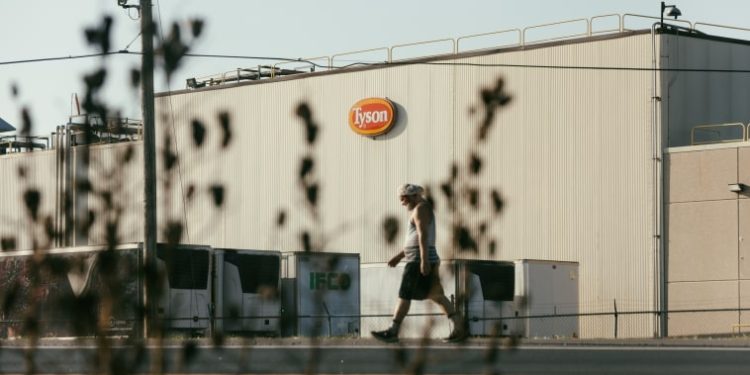“Woes of the Ozarks: Tyson Plant Closings Trigger Economic Reflection
The Ozarks region of the U.S. has been deeply impacted by the news of Tyson Foods’ plant closures, which is prompting both politicians and citizens to engage in an economic soul searching. The plant closures, most of which have hit the Northern and Central portions of the Ozarks, are responsible for wiping out an estimated 5,000 jobs in the area and will undoubtedly bring about significant changes the local economy.
On one hand, the loss of the Tyson Foods plants creates a critical gap in the local job market, leaving thousands of workers without work and entire communities without a key source of income. As a result, towns in the Ozarks will suddenly have to find new ways of maintaining their economic stability despite the loss of such a significant employer.
At the same time, the plant closures have also presented an opportunity for the region to identify and cultivate new sources of economic growth. In response to the urgent need for jobs, local politicians have already begun putting forth initiatives that propose ways to attract new businesses and industries, including tech ventures and supply-chain logistics centers.
From all this activity, one thing is clear: that Tyson Foods’ plant closings have served as a catalyst for the people of the Ozarks to grapple with their own economic identity. To make the most of such a difficult situation, the region’s leaders must actively find ways to get ahead of the changing economic landscape and turn that challenge into an opportunity to create a brighter economic future.
Therefore, the combination of private enterprises and public policies must work together to ensure that the region is adequately equipped to respond to the current crisis by transitioning the economy towards more sustainable and long-term economic activities. With the right strategy, the people of the Ozarks can ensure that their region will emerge stronger from this difficult period and become an example of how the challenges can be turned into solutions.
The Ozarks region of the U.S. has been deeply impacted by the news of Tyson Foods’ plant closures, which is prompting both politicians and citizens to engage in an economic soul searching. The plant closures, most of which have hit the Northern and Central portions of the Ozarks, are responsible for wiping out an estimated 5,000 jobs in the area and will undoubtedly bring about significant changes the local economy.
On one hand, the loss of the Tyson Foods plants creates a critical gap in the local job market, leaving thousands of workers without work and entire communities without a key source of income. As a result, towns in the Ozarks will suddenly have to find new ways of maintaining their economic stability despite the loss of such a significant employer.
At the same time, the plant closures have also presented an opportunity for the region to identify and cultivate new sources of economic growth. In response to the urgent need for jobs, local politicians have already begun putting forth initiatives that propose ways to attract new businesses and industries, including tech ventures and supply-chain logistics centers.
From all this activity, one thing is clear: that Tyson Foods’ plant closings have served as a catalyst for the people of the Ozarks to grapple with their own economic identity. To make the most of such a difficult situation, the region’s leaders must actively find ways to get ahead of the changing economic landscape and turn that challenge into an opportunity to create a brighter economic future.
Therefore, the combination of private enterprises and public policies must work together to ensure that the region is adequately equipped to respond to the current crisis by transitioning the economy towards more sustainable and long-term economic activities. With the right strategy, the people of the Ozarks can ensure that their region will emerge stronger from this difficult period and become an example of how the challenges can be turned into solutions.










